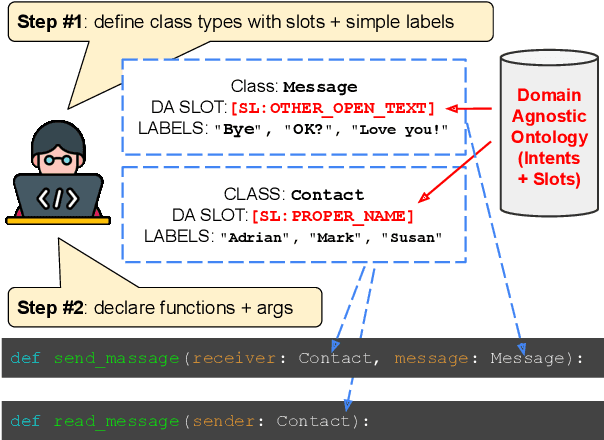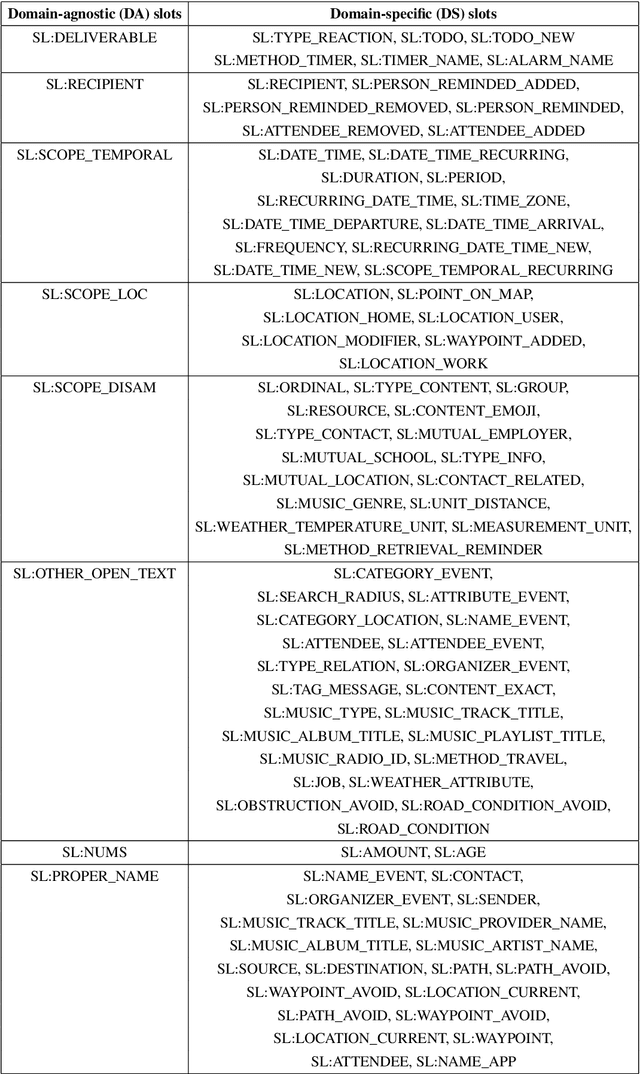Ahmed Mohamed
Towards Zero-Shot Frame Semantic Parsing with Task Agnostic Ontologies and Simple Labels
May 05, 2023



Abstract:Frame semantic parsing is an important component of task-oriented dialogue systems. Current models rely on a significant amount training data to successfully identify the intent and slots in the user's input utterance. This creates a significant barrier for adding new domains to virtual assistant capabilities, as creation of this data requires highly specialized NLP expertise. In this work we propose OpenFSP, a framework that allows for easy creation of new domains from a handful of simple labels that can be generated without specific NLP knowledge. Our approach relies on creating a small, but expressive, set of domain agnostic slot types that enables easy annotation of new domains. Given such annotation, a matching algorithm relying on sentence encoders predicts the intent and slots for domains defined by end-users. Extensive experiments on the TopV2 dataset shows that our model outperforms strong baselines in this simple labels setting.
Information Extraction of Clinical Trial Eligibility Criteria
Jun 16, 2020



Abstract:Clinical trials predicate subject eligibility on a diversity of criteria ranging from patient demographics to food allergies. Trials post their requirements as semantically complex, unstructured free-text. Formalizing trial criteria to a computer-interpretable syntax would facilitate eligibility determination. In this paper, we investigate an information extraction (IE) approach for grounding criteria from trials in ClinicalTrials(dot)gov to a shared knowledge base. We frame the problem as a novel knowledge base population task, and implement a solution combining machine learning and context free grammar. To our knowledge, this work is the first criteria extraction system to apply attention-based conditional random field architecture for named entity recognition (NER), and word2vec embedding clustering for named entity linking (NEL). We release the resources and core components of our system on GitHub at https://github.com/facebookresearch/Clinical-Trial-Parser. Finally, we report our per module and end to end performances; we conclude that our system is competitive with Criteria2Query, which we view as the current state-of-the-art in criteria extraction.
 Add to Chrome
Add to Chrome Add to Firefox
Add to Firefox Add to Edge
Add to Edge